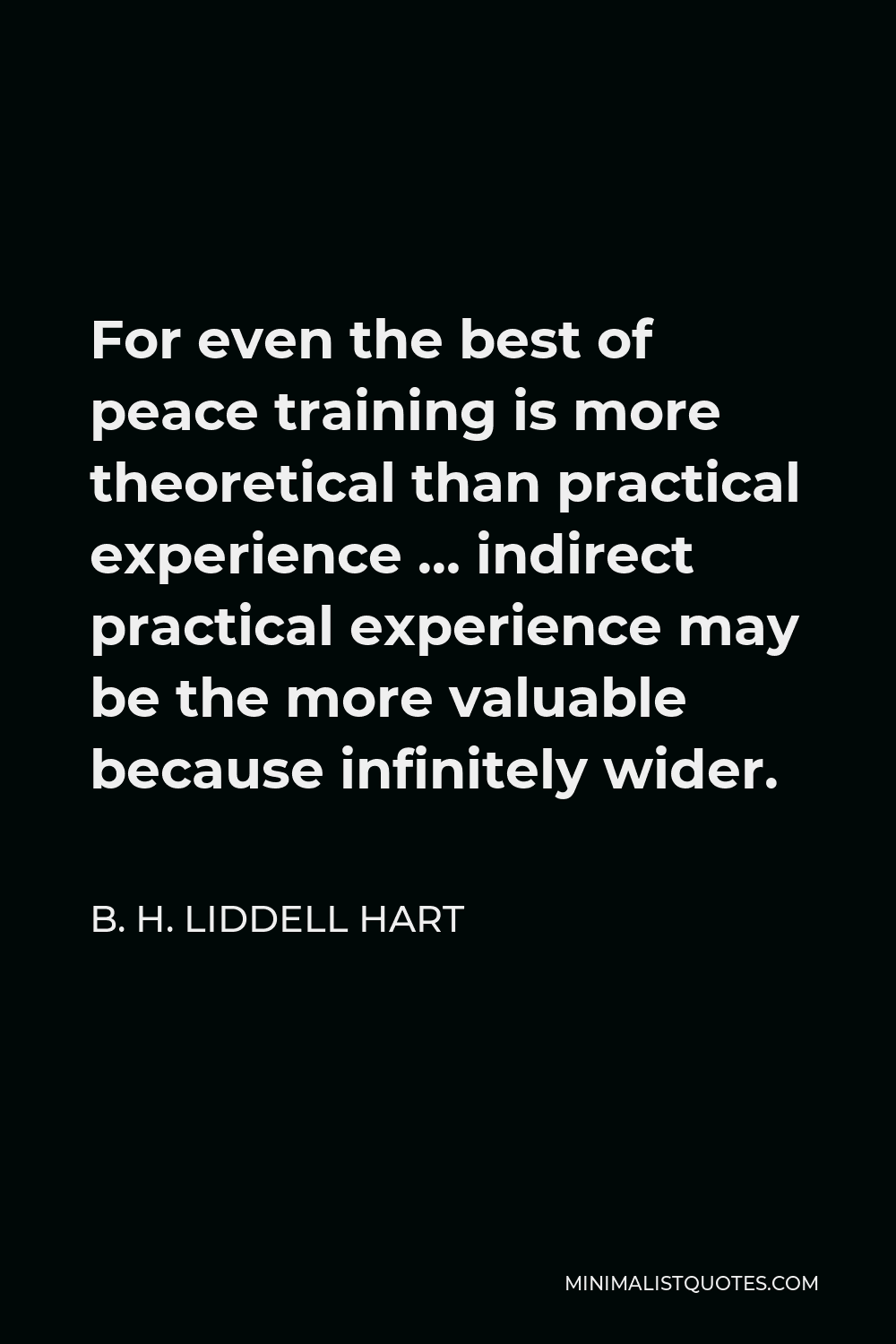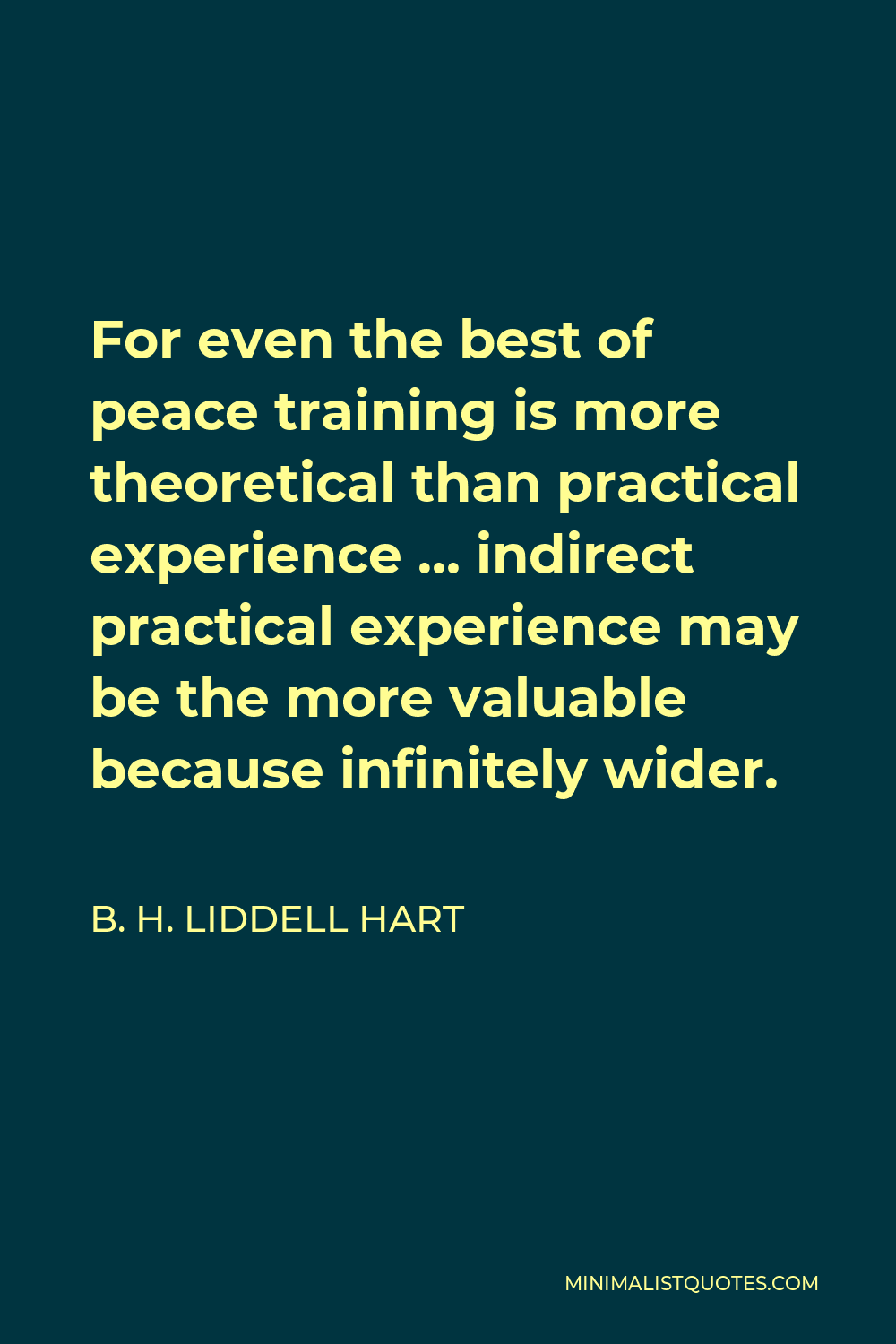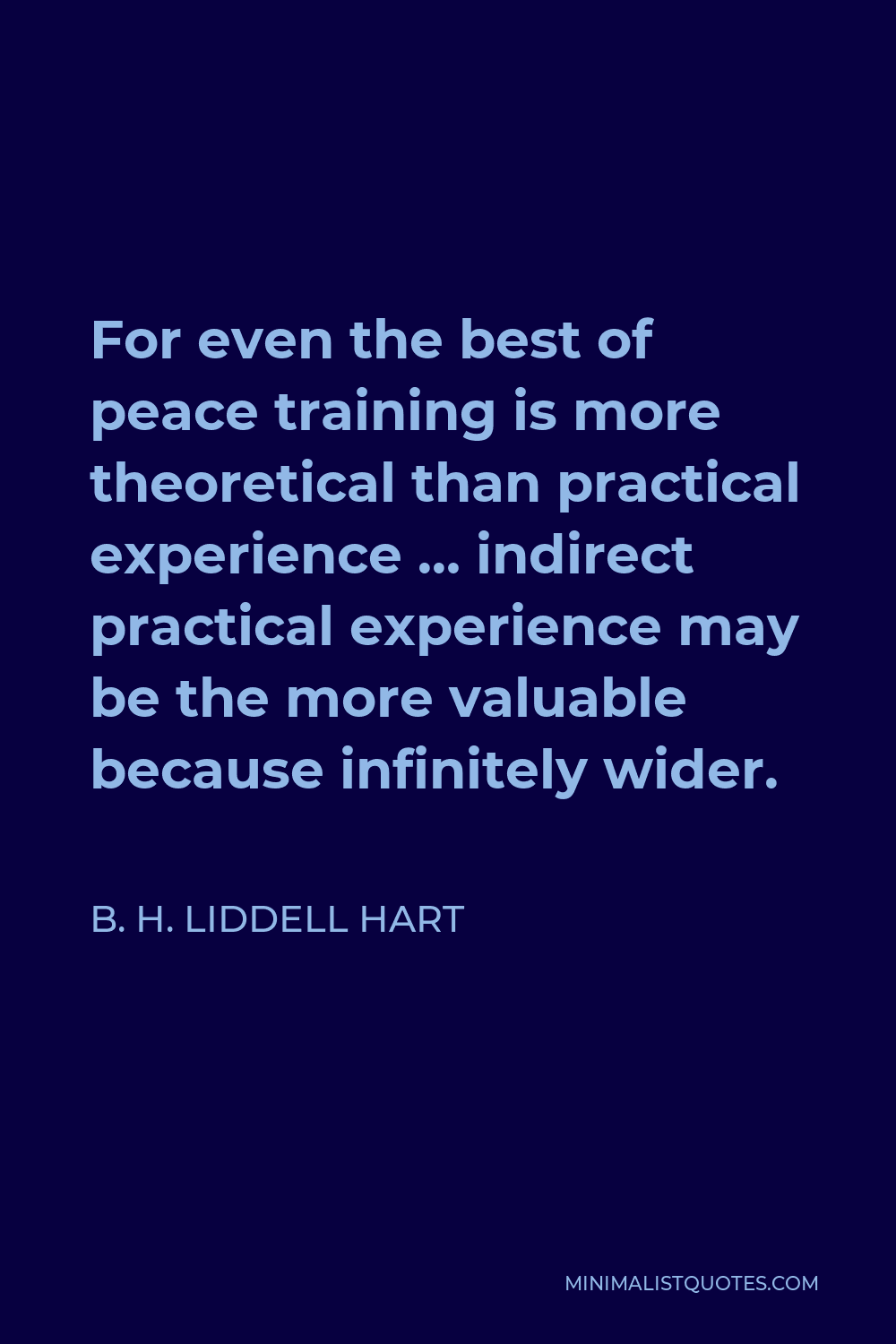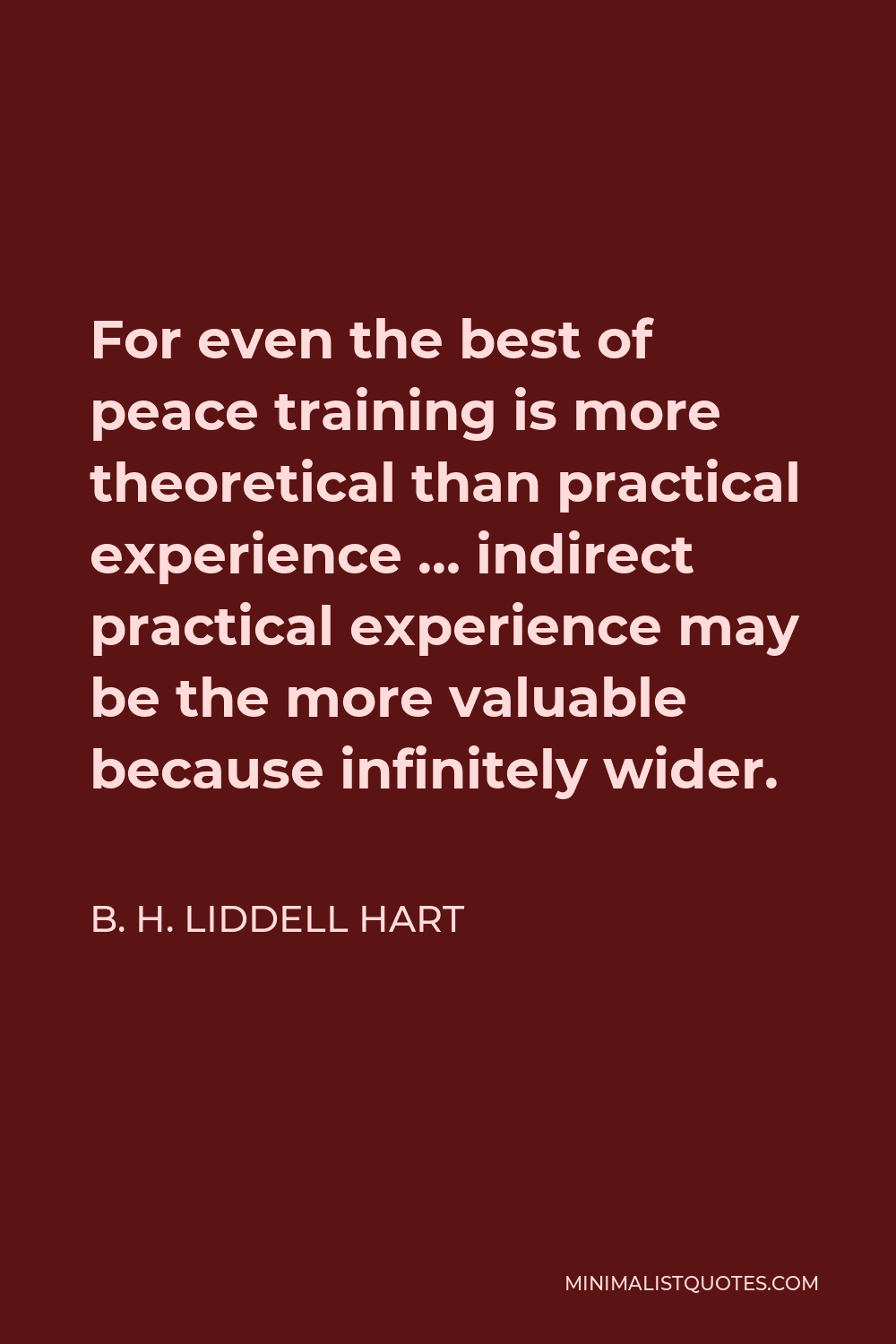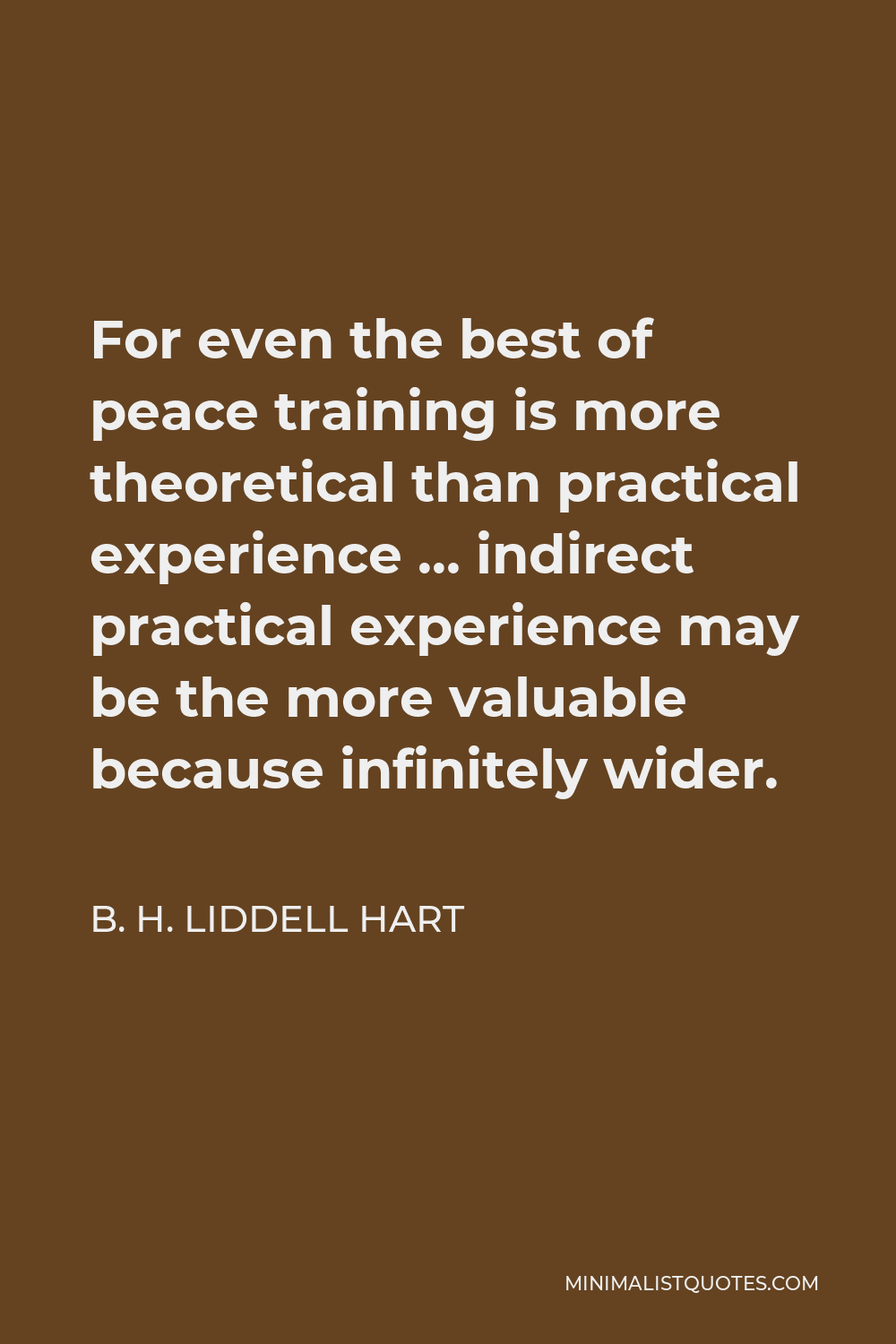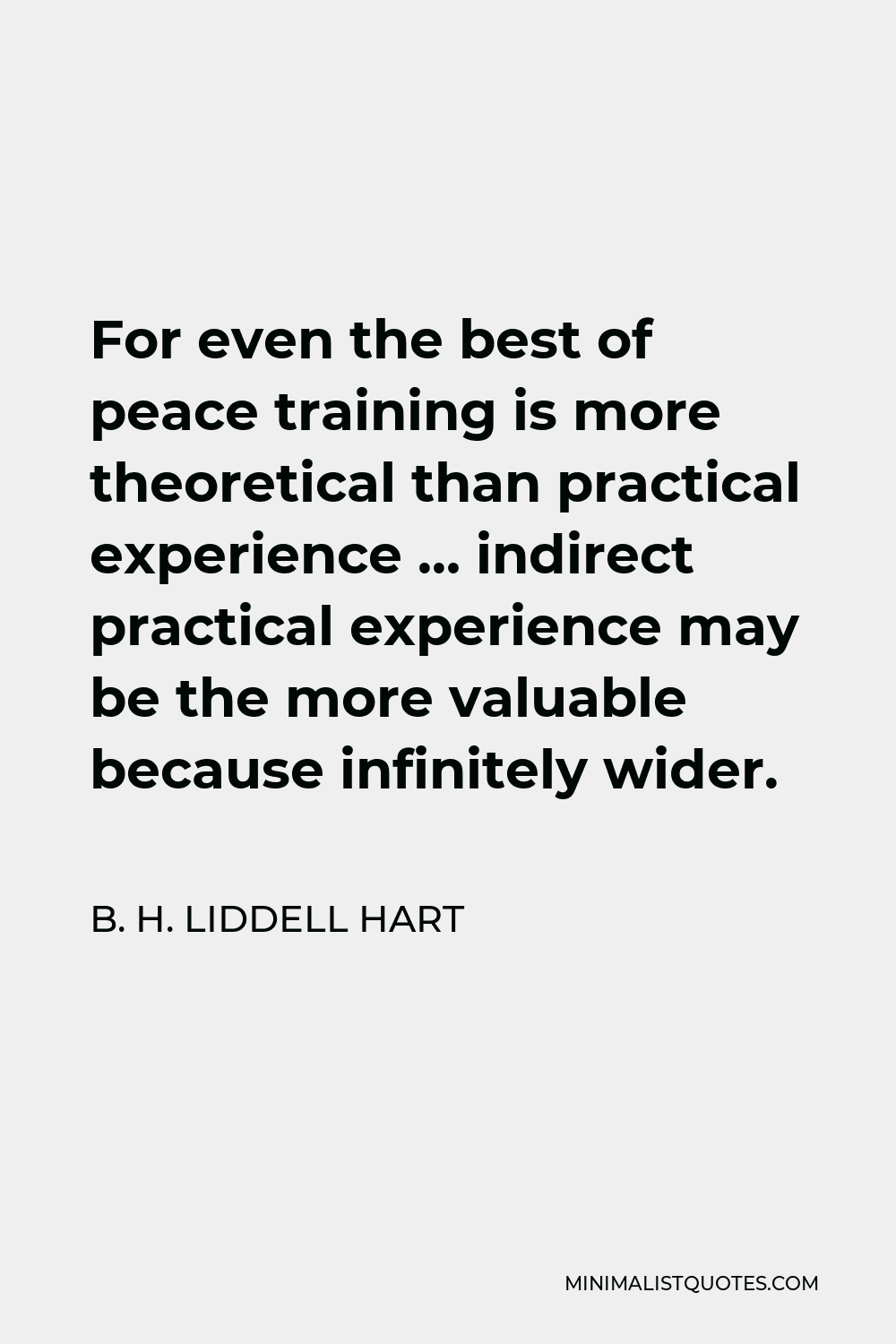As has happened so often in history, victory had bred a complacency and fostered an orthodoxy which led to defeat in the next war.
B. H. LIDDELL HARTFor even the best of peace training is more theoretical than practical experience … indirect practical experience may be the more valuable because infinitely wider.
More B. H. Liddell Hart Quotes
-





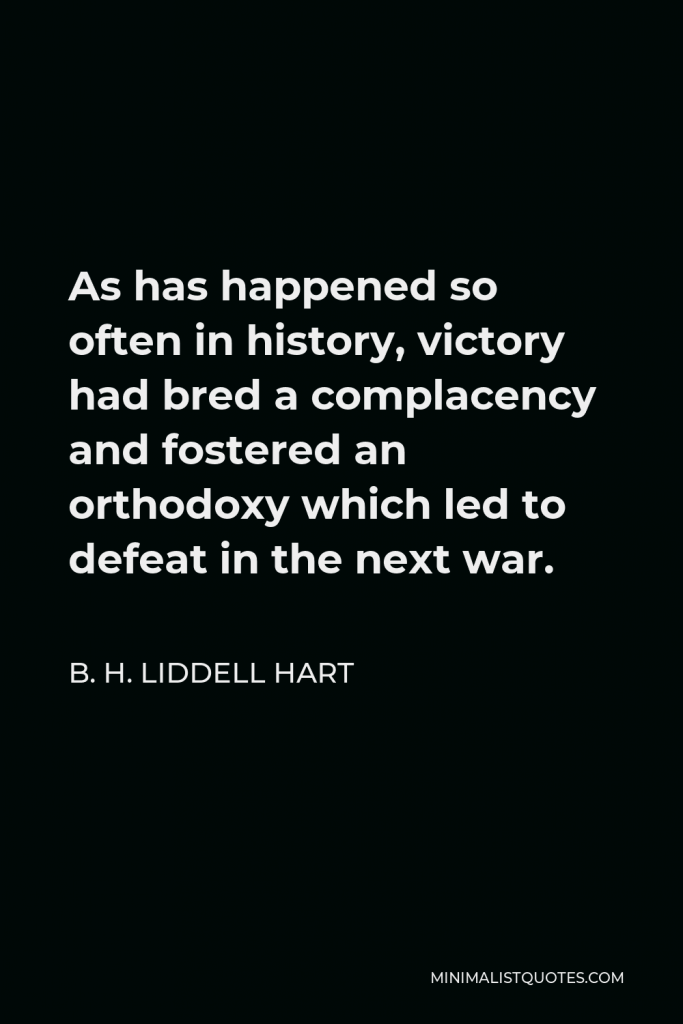

-





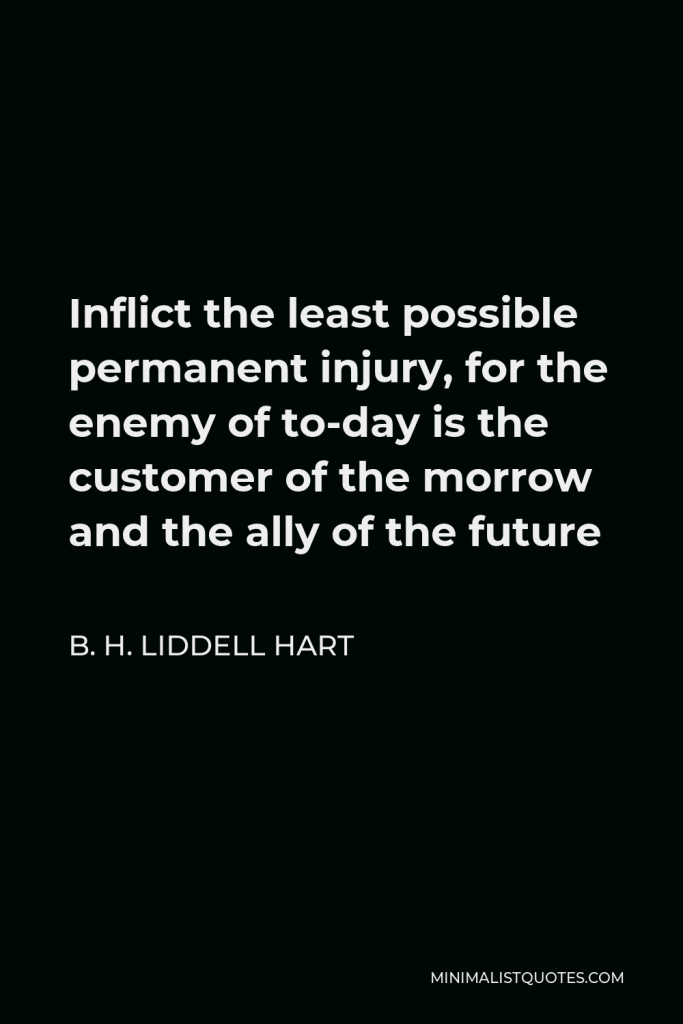

Inflict the least possible permanent injury, for the enemy of to-day is the customer of the morrow and the ally of the future
B. H. LIDDELL HART -





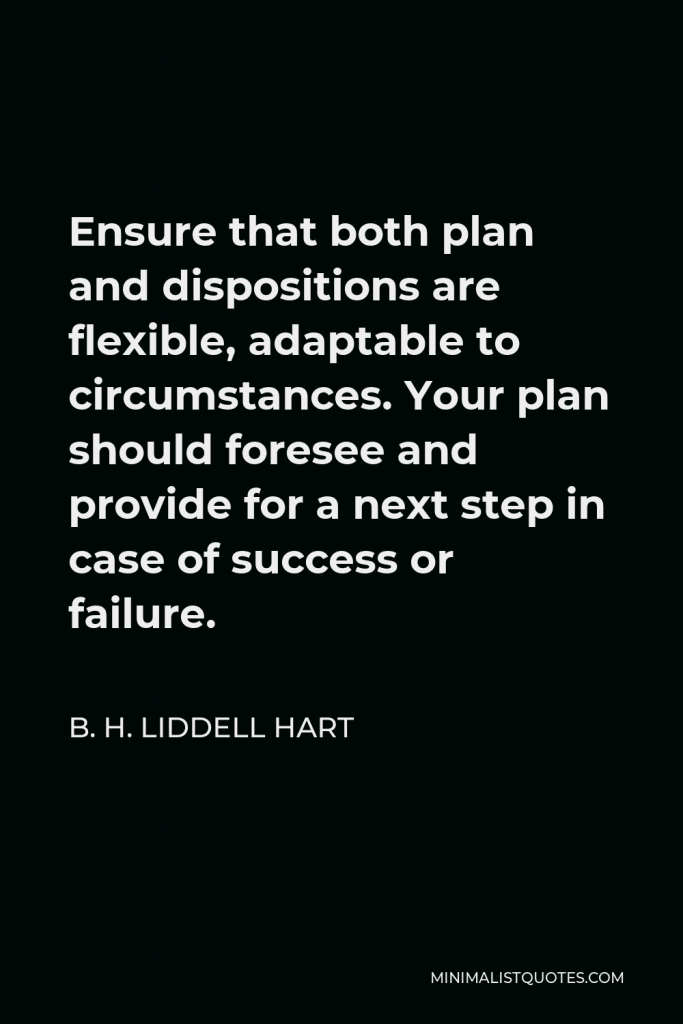

Ensure that both plan and dispositions are flexible, adaptable to circumstances. Your plan should foresee and provide for a next step in case of success or failure.
B. H. LIDDELL HART -





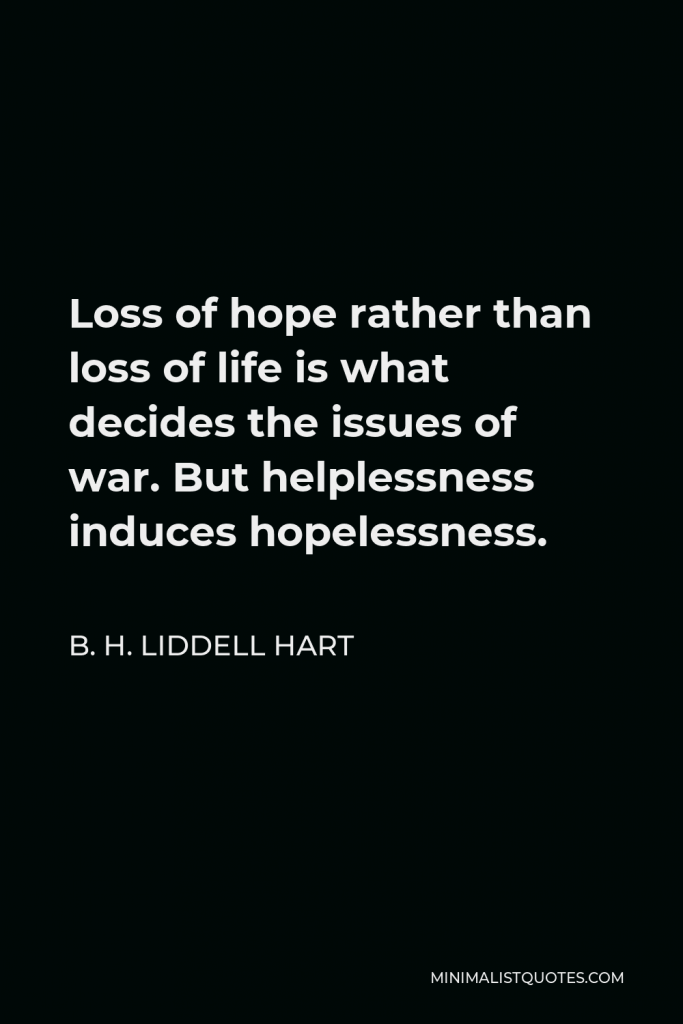

Loss of hope rather than loss of life is what decides the issues of war. But helplessness induces hopelessness.
B. H. LIDDELL HART -





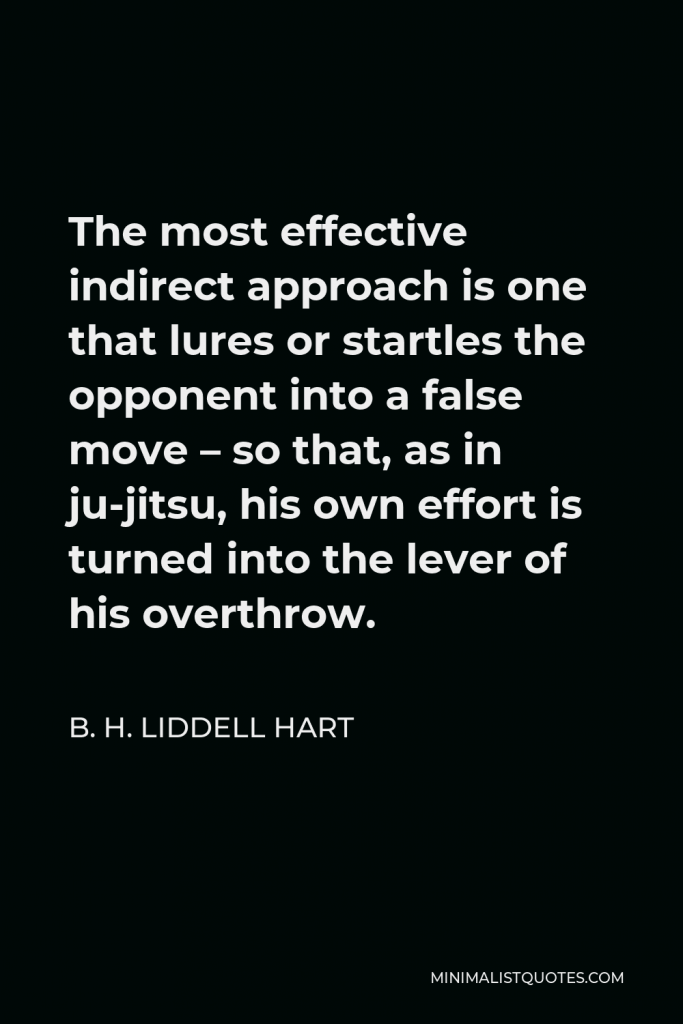

The most effective indirect approach is one that lures or startles the opponent into a false move – so that, as in ju-jitsu, his own effort is turned into the lever of his overthrow.
B. H. LIDDELL HART -





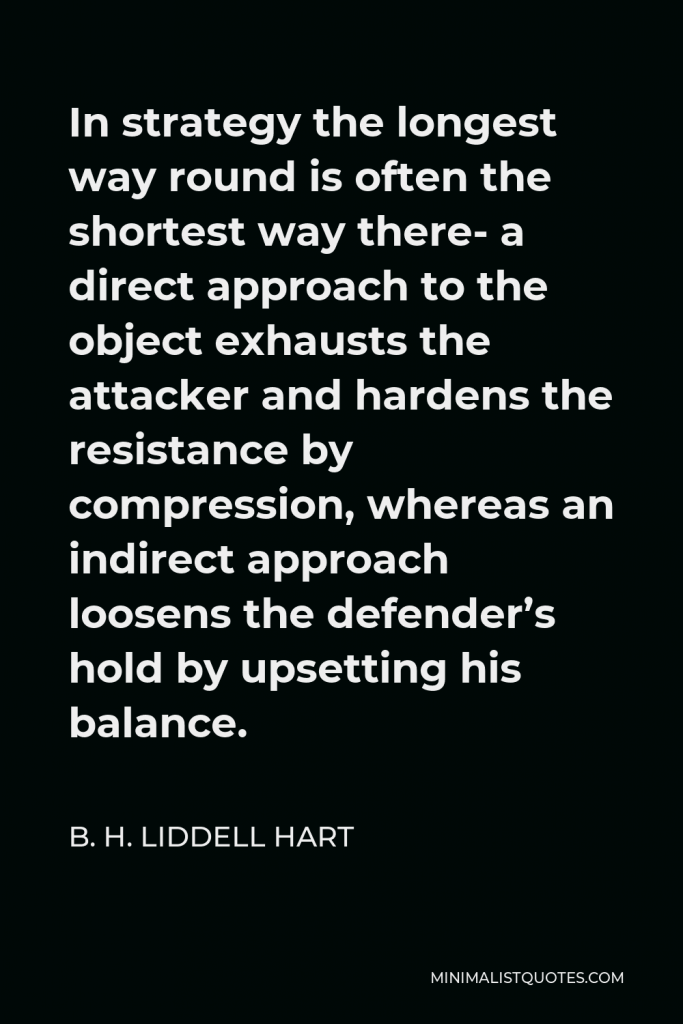

In strategy the longest way round is often the shortest way there- a direct approach to the object exhausts the attacker and hardens the resistance by compression, whereas an indirect approach loosens the defender’s hold by upsetting his balance.
B. H. LIDDELL HART -





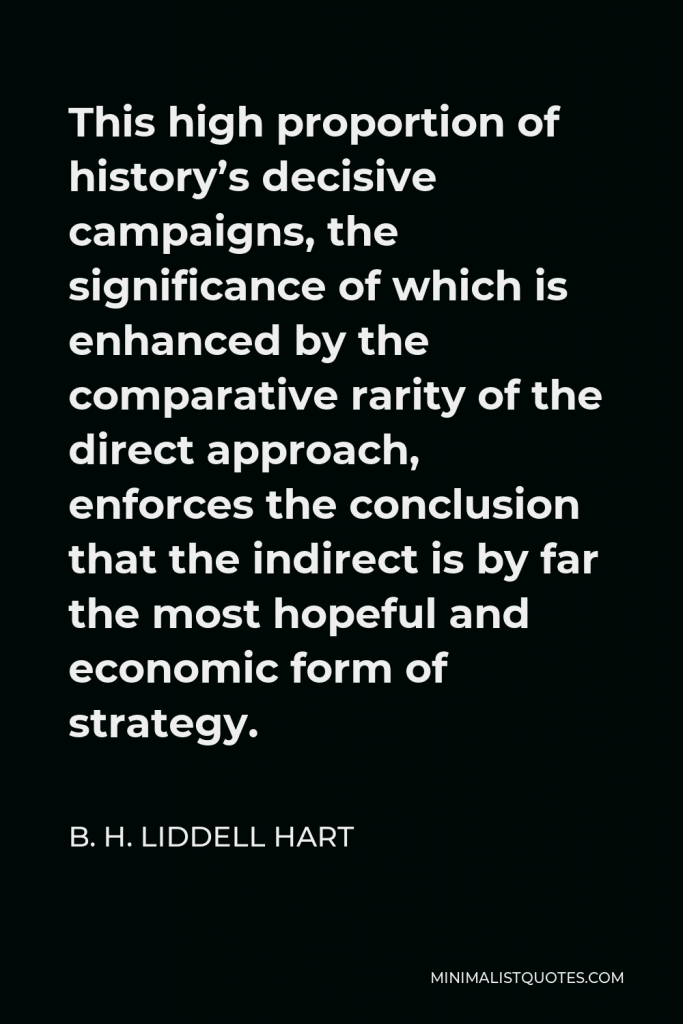

This high proportion of history’s decisive campaigns, the significance of which is enhanced by the comparative rarity of the direct approach, enforces the conclusion that the indirect is by far the most hopeful and economic form of strategy.
B. H. LIDDELL HART -





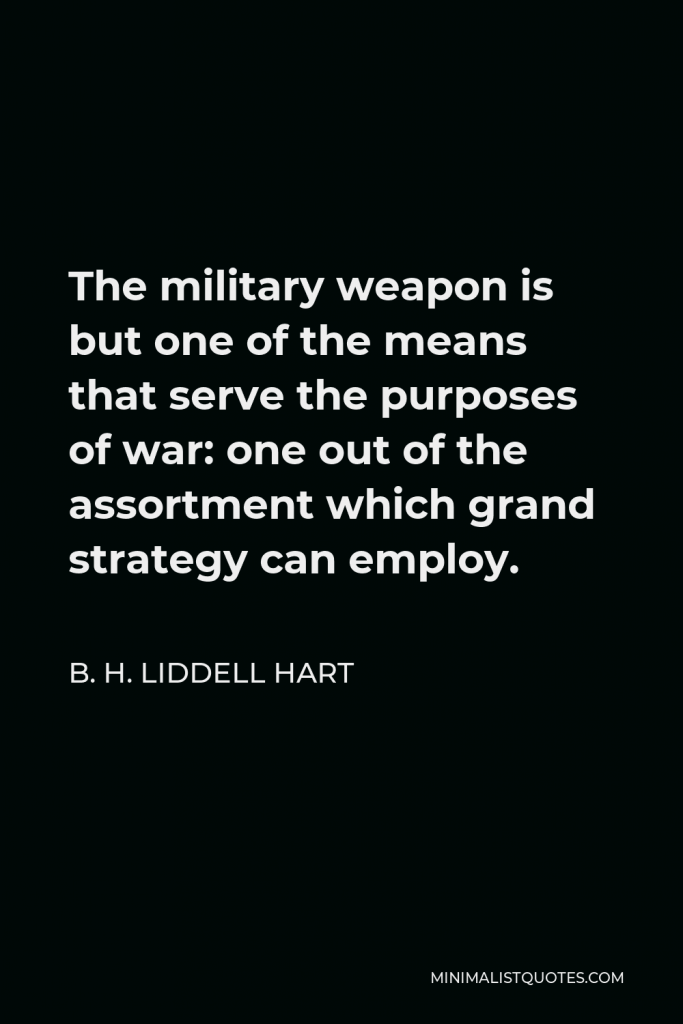

The military weapon is but one of the means that serve the purposes of war: one out of the assortment which grand strategy can employ.
B. H. LIDDELL HART -





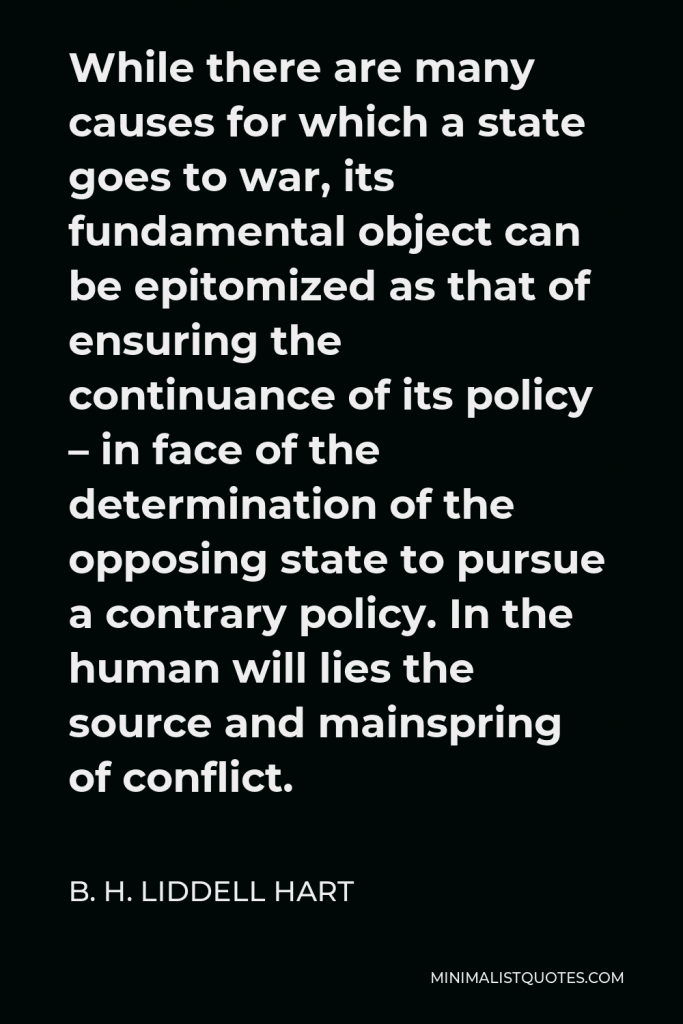

While there are many causes for which a state goes to war, its fundamental object can be epitomized as that of ensuring the continuance of its policy – in face of the determination of the opposing state to pursue a contrary policy. In the human will lies the source and mainspring of conflict.
B. H. LIDDELL HART -





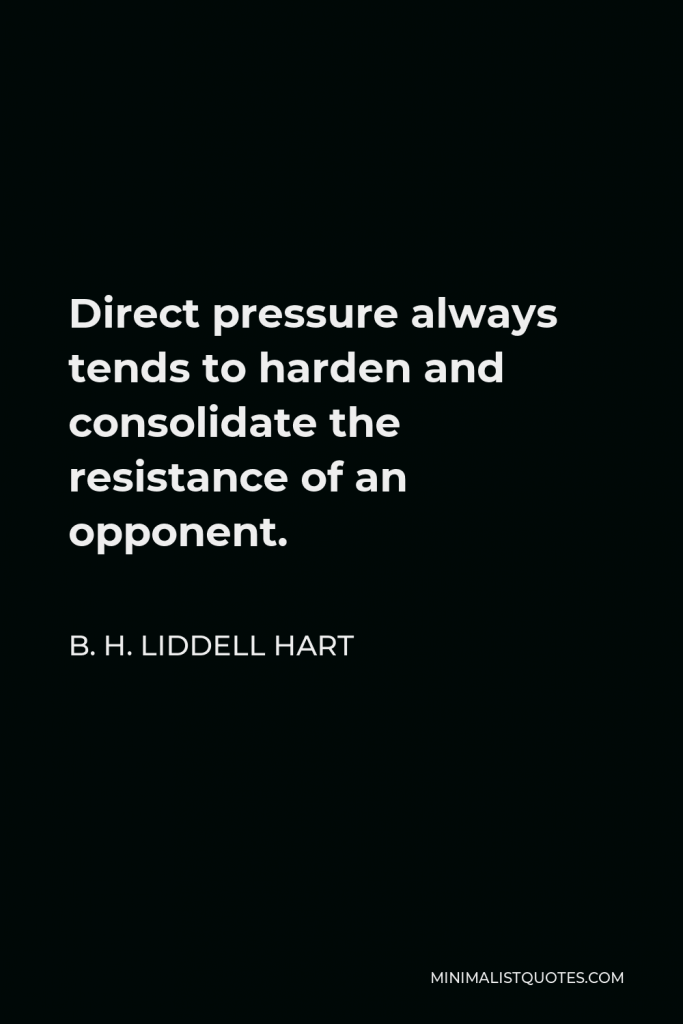

Direct pressure always tends to harden and consolidate the resistance of an opponent.
B. H. LIDDELL HART -





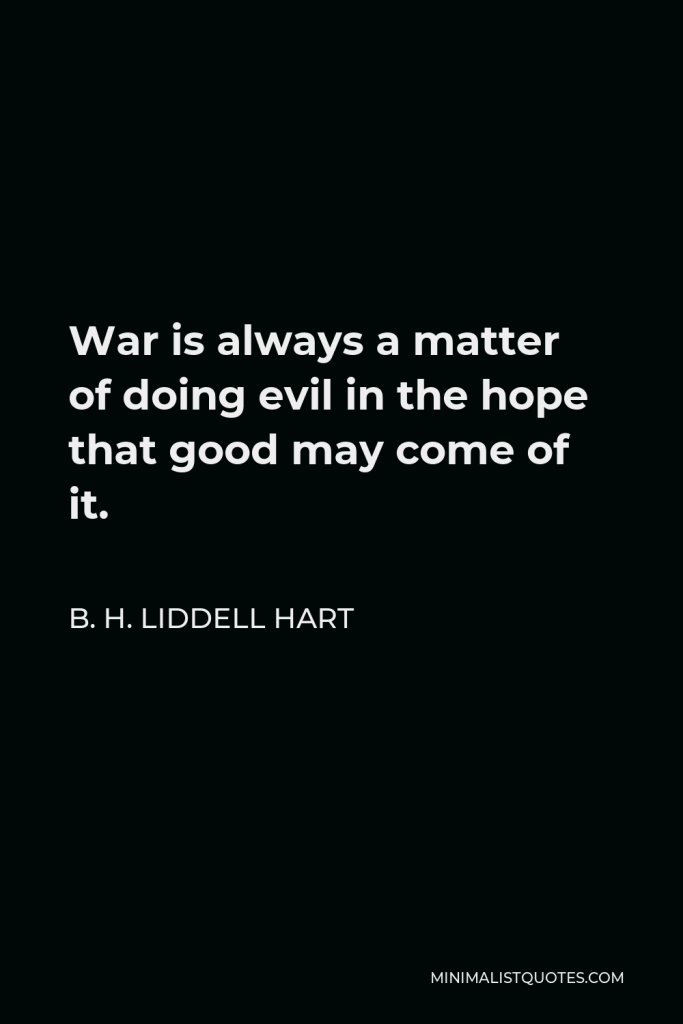

War is always a matter of doing evil in the hope that good may come of it.
B. H. LIDDELL HART -





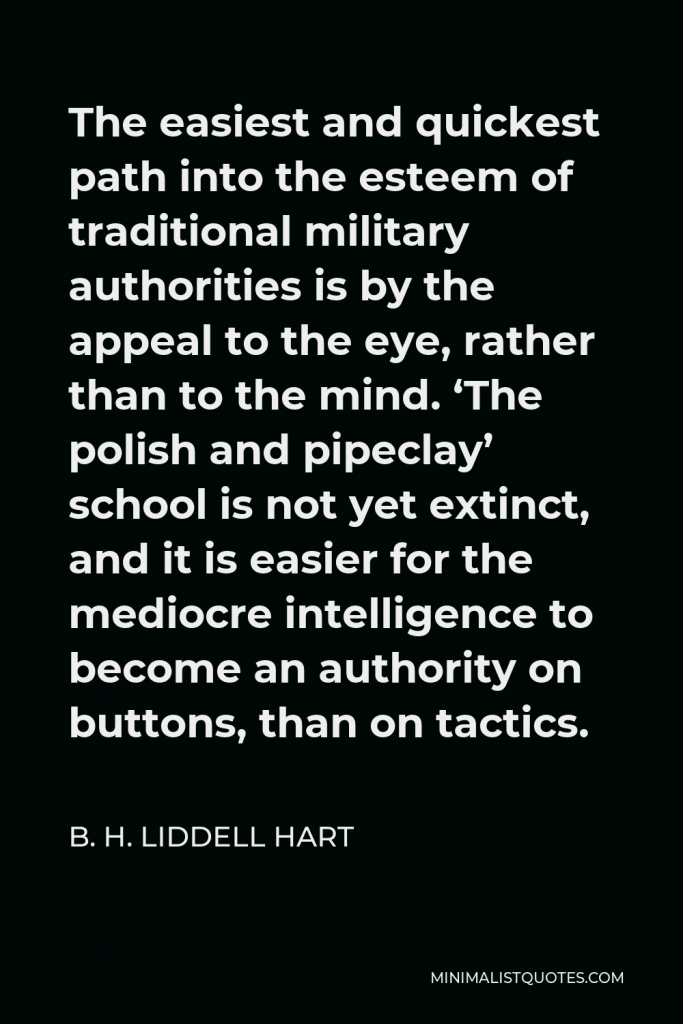

The easiest and quickest path into the esteem of traditional military authorities is by the appeal to the eye, rather than to the mind. ‘The polish and pipeclay’ school is not yet extinct, and it is easier for the mediocre intelligence to become an authority on buttons, than on tactics.
B. H. LIDDELL HART -





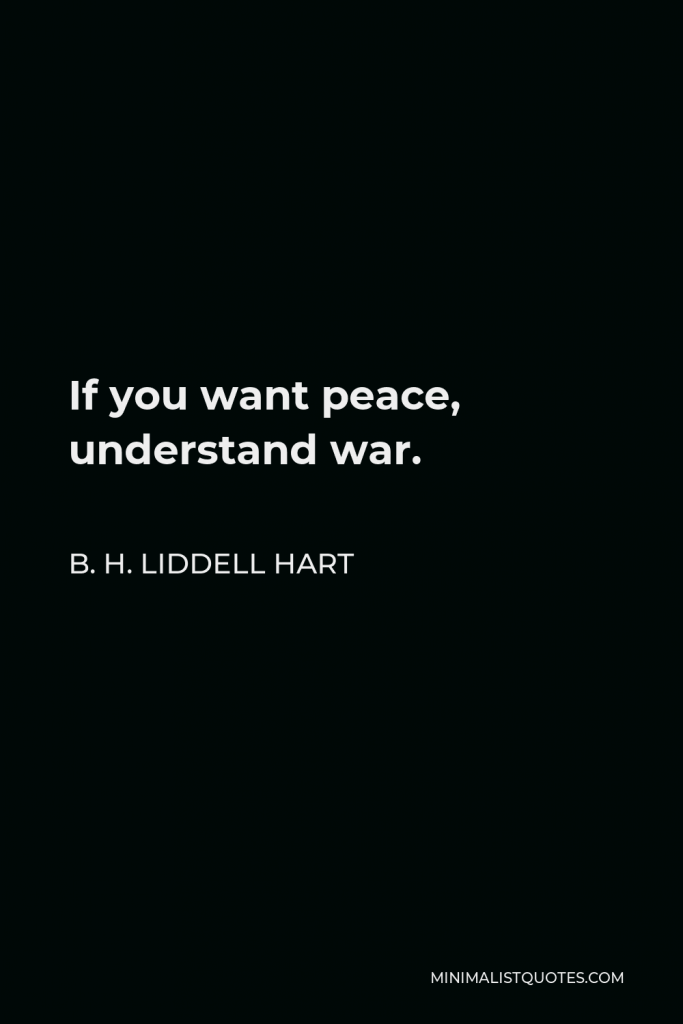

If you want peace, understand war.
B. H. LIDDELL HART -





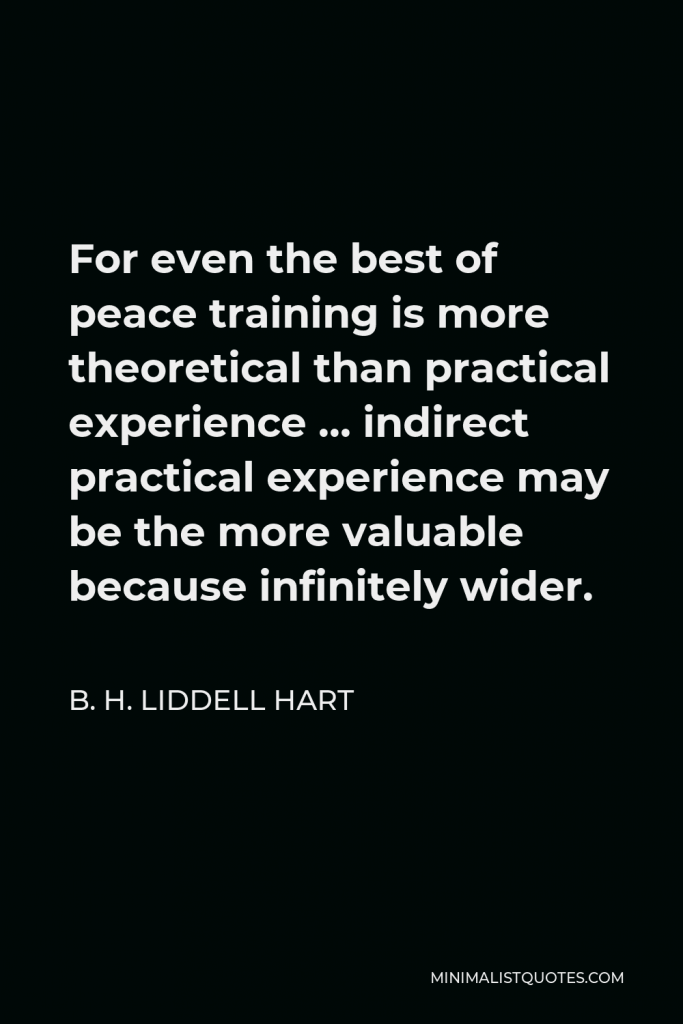

For even the best of peace training is more theoretical than practical experience … indirect practical experience may be the more valuable because infinitely wider.
B. H. LIDDELL HART -





![B. H. Liddell Hart Quote - [The] aim is not so much to seek battle as to seek a strategic situation so advantageous that if it does not of itself produce the decision, its continuation by a battle is sure to achieve this. In other words, dislocation is the aim of strategy.](https://minimalistquotes.com/wp-content/uploads/2022/10/the-aim-is-not-so-much-to-seek-battle-as-to-seek-a-683x1024.jpg)

[The] aim is not so much to seek battle as to seek a strategic situation so advantageous that if it does not of itself produce the decision, its continuation by a battle is sure to achieve this. In other words, dislocation is the aim of strategy.
B. H. LIDDELL HART -





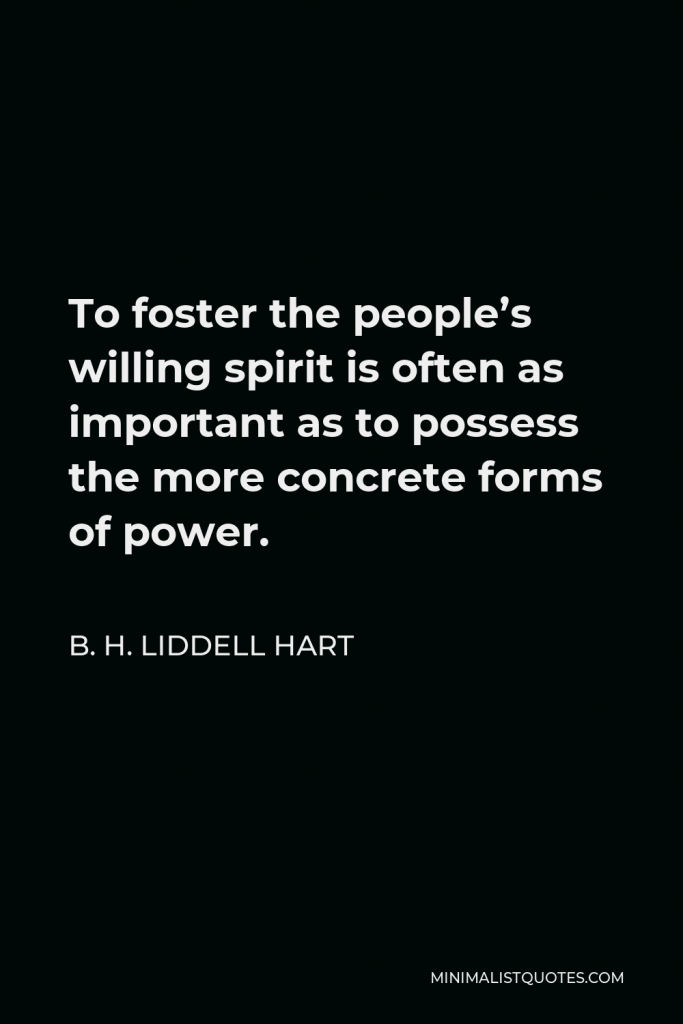

To foster the people’s willing spirit is often as important as to possess the more concrete forms of power.
B. H. LIDDELL HART
